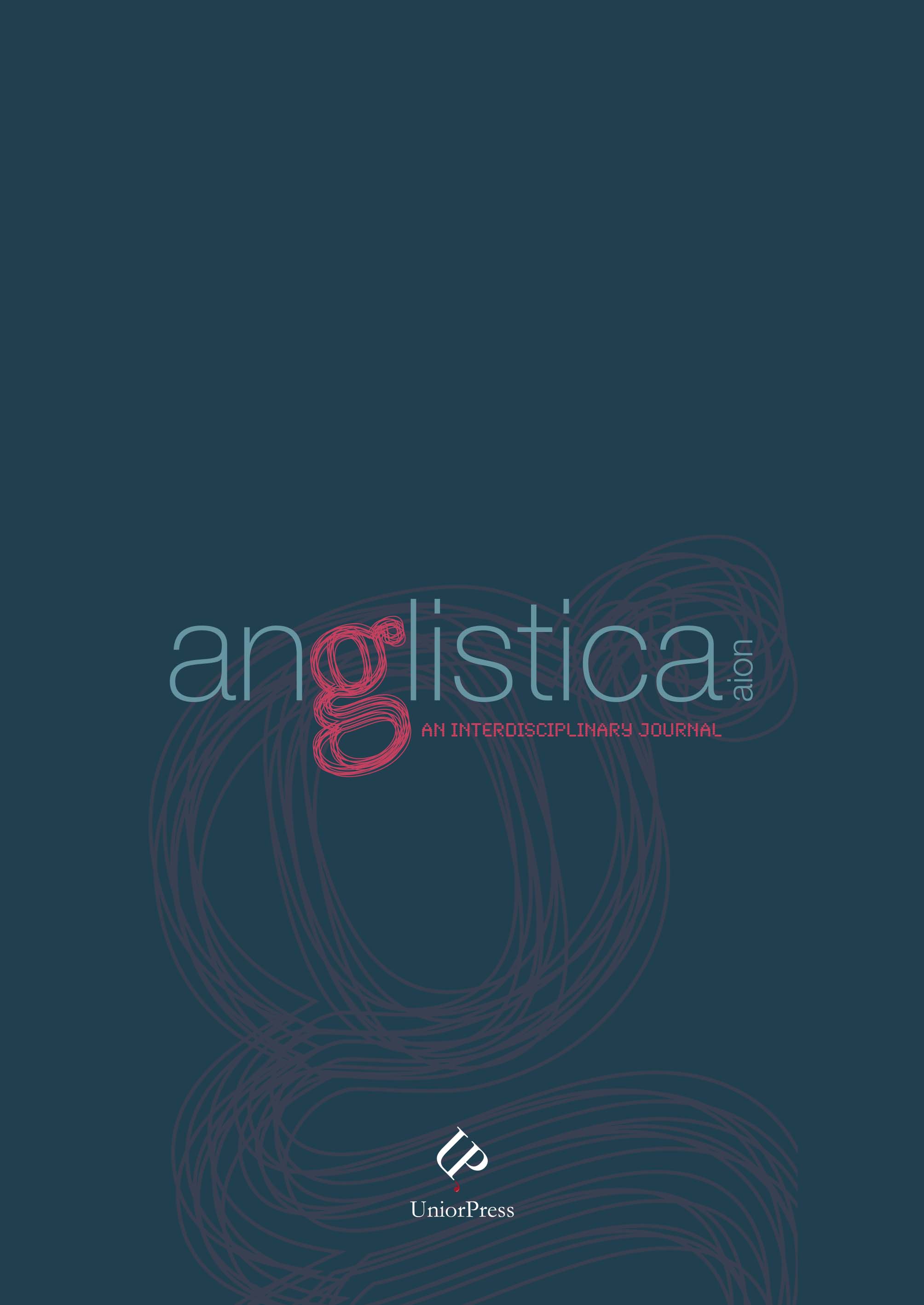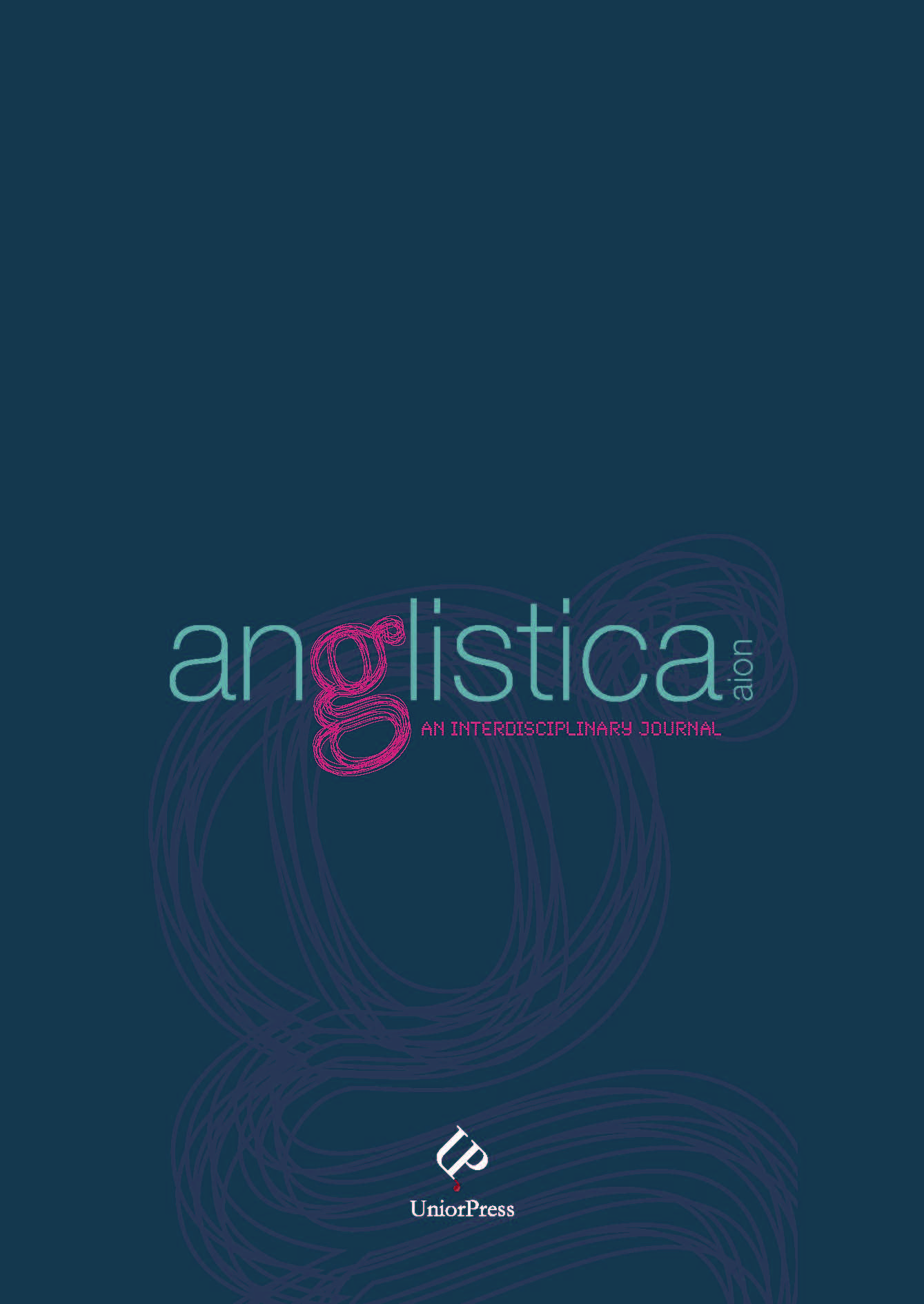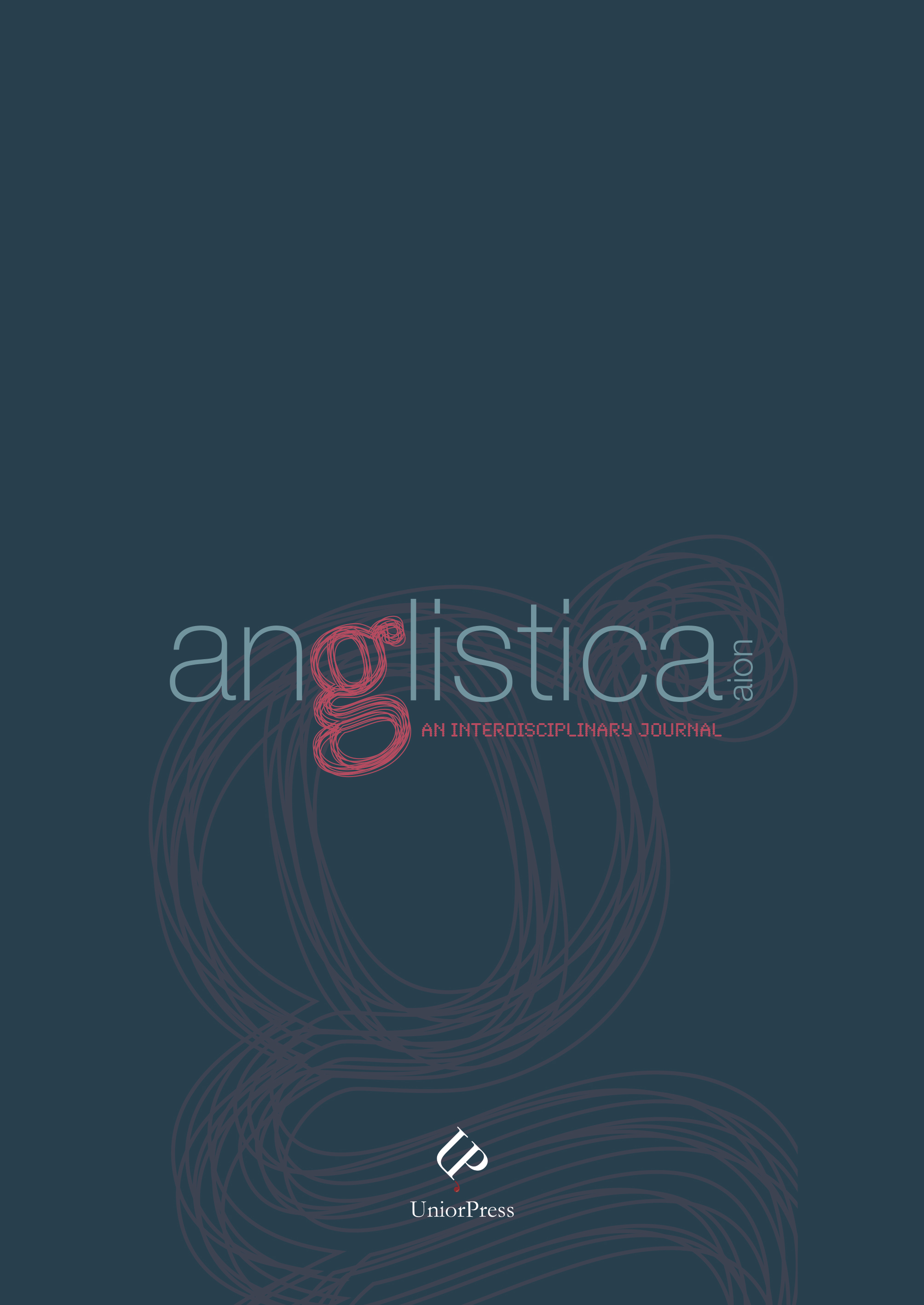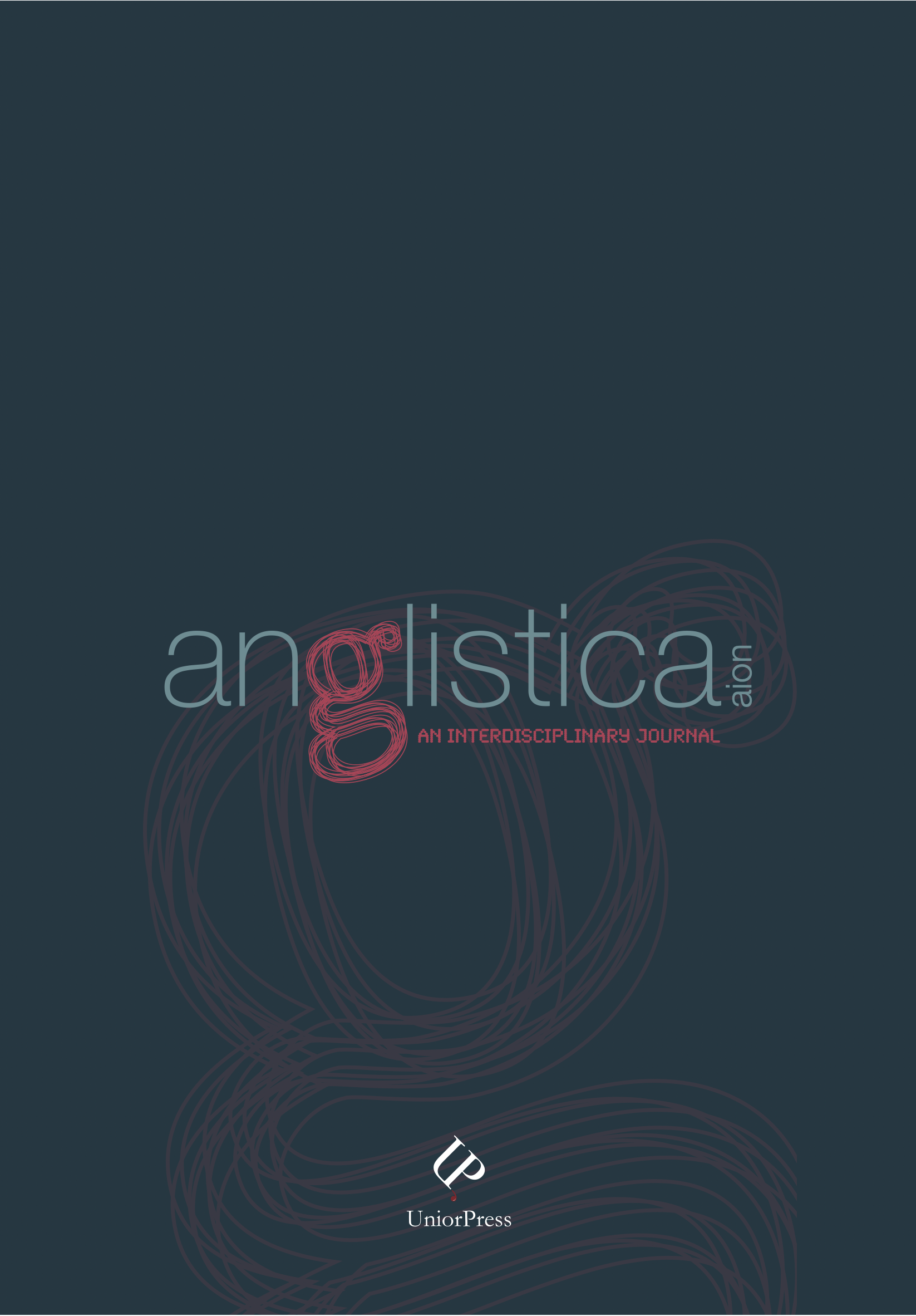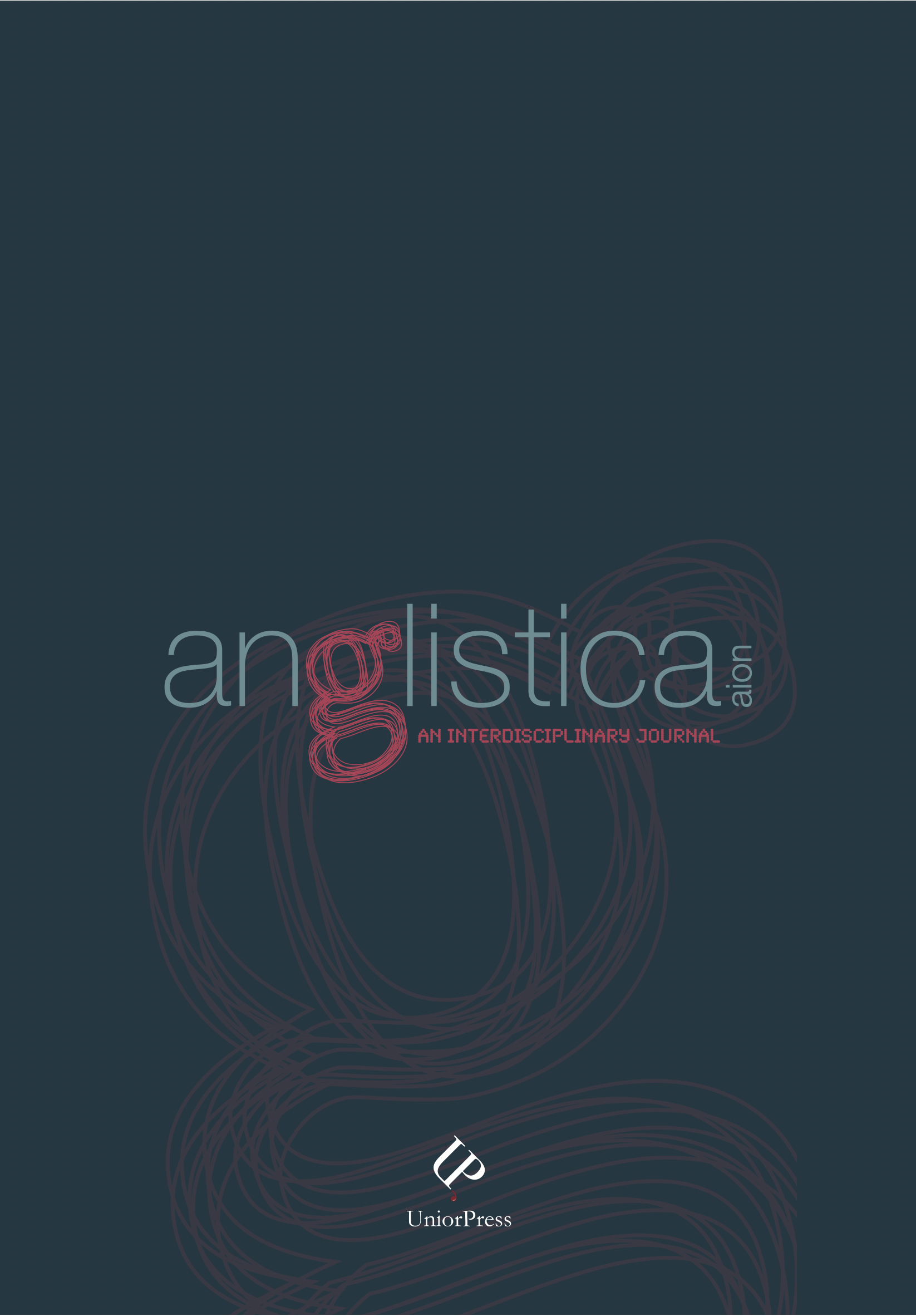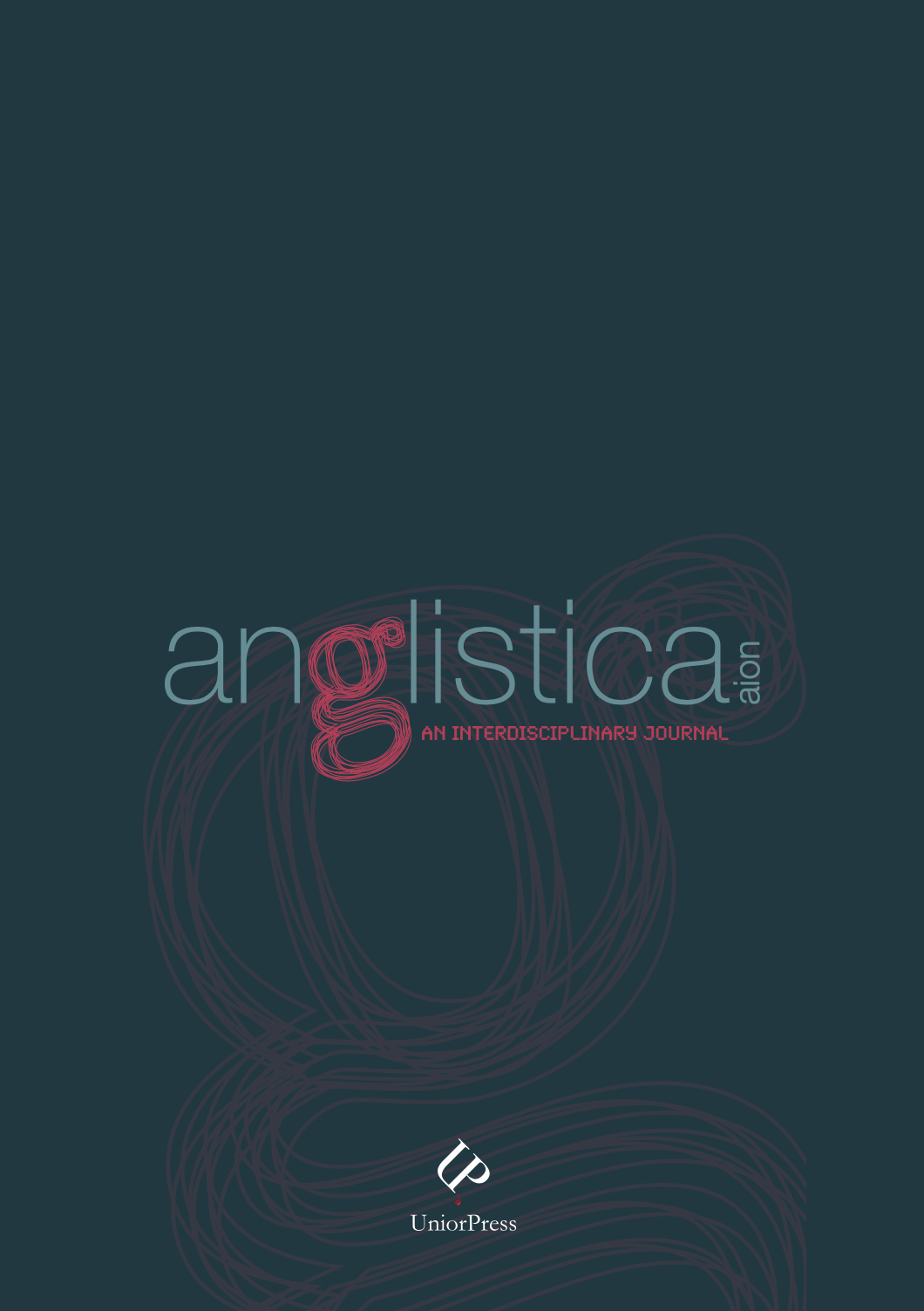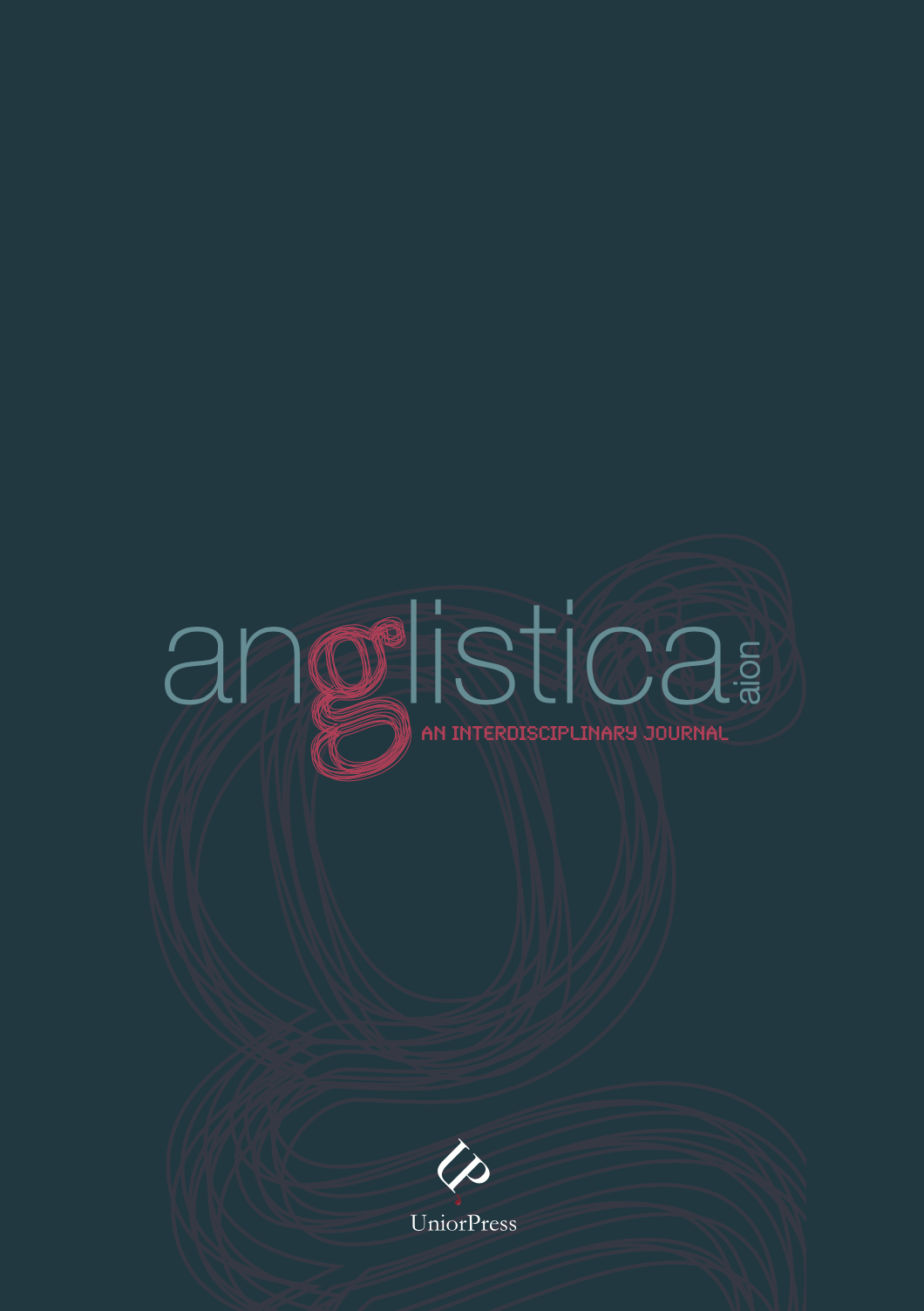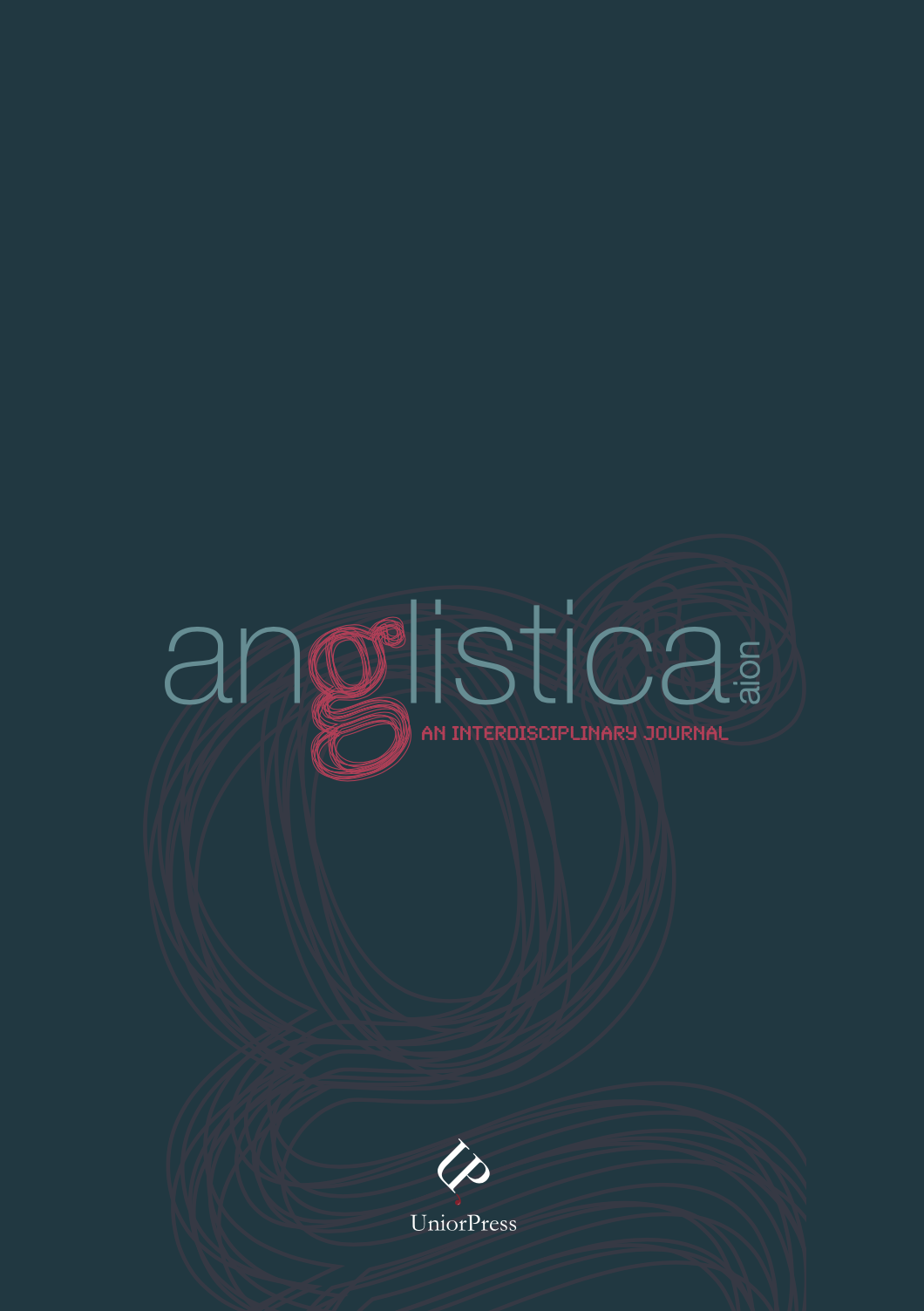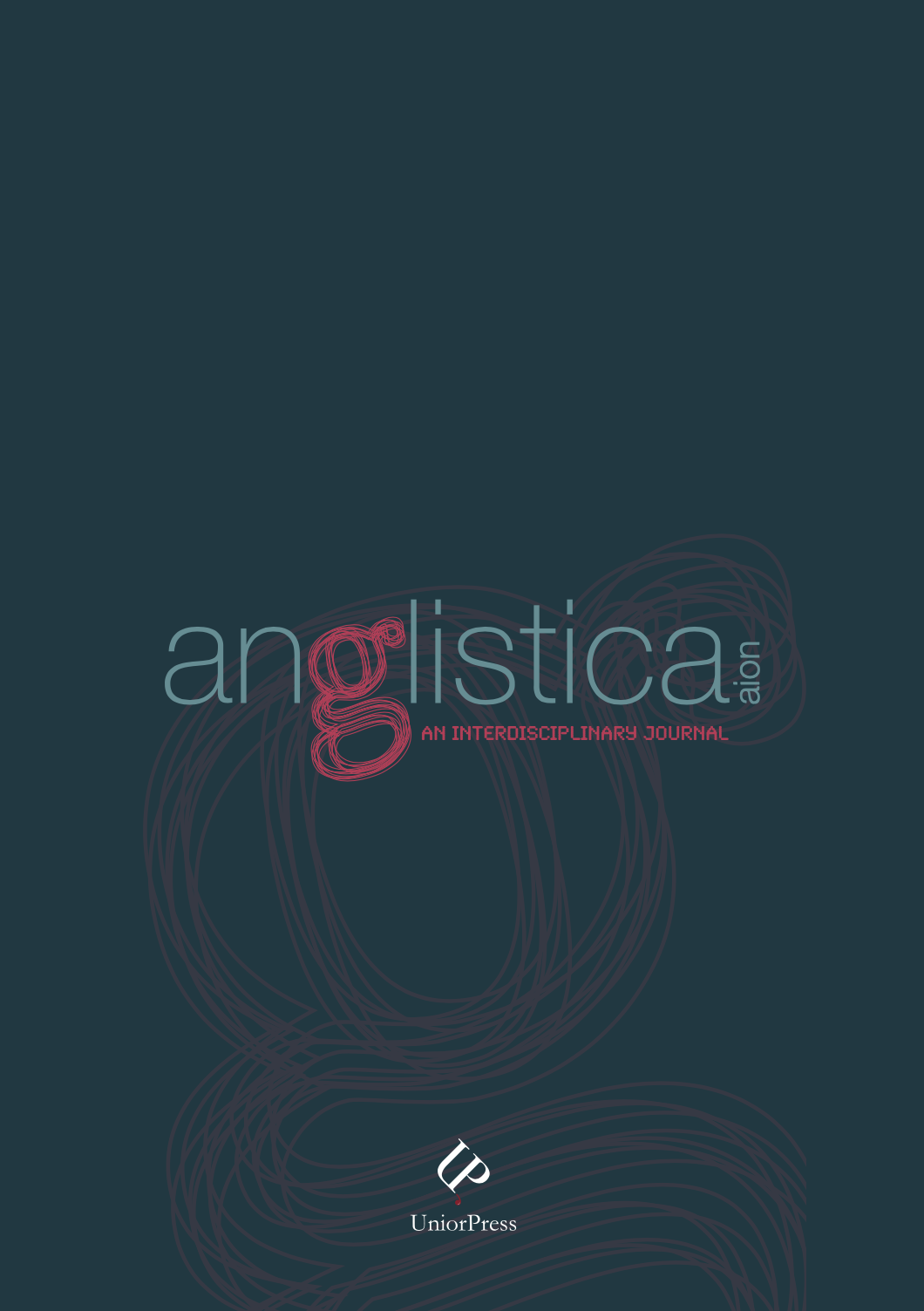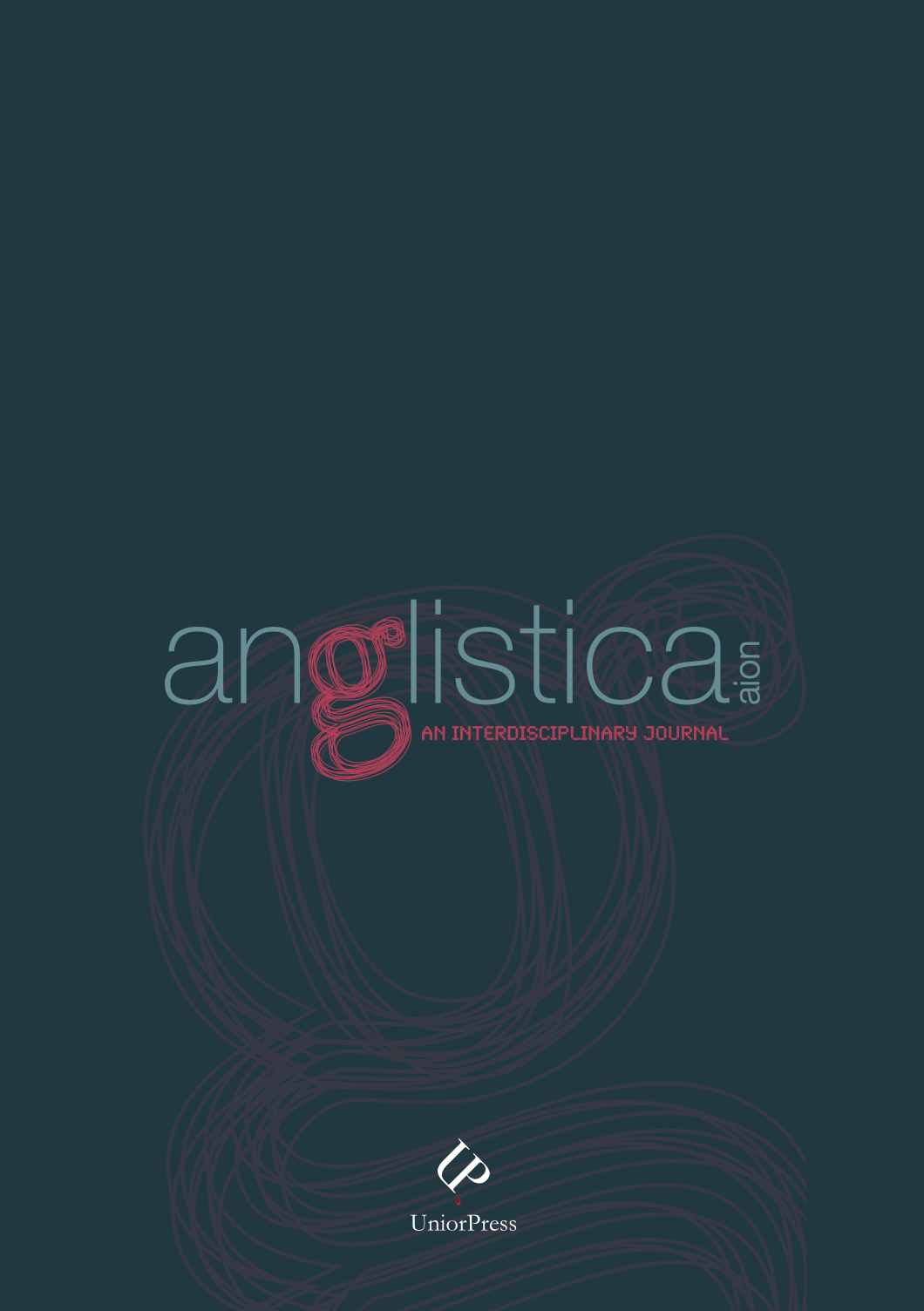-
 Pre-Fixing the Colonial: Theory and Practice
Vol 23 No 2 (2019)
Pre-Fixing the Colonial: Theory and Practice
Vol 23 No 2 (2019)Prefixes have always been cause for controversy when it comes to colonialism. On one hand, the “post” in “postcolonial” has famously sparked debate about temporalities and epistemology; on the other, a growing school of thought claims that turning to the term “decolonial” would disambiguate the content and reach deeper into the power relations at play. Postcolonial theory is often considered as reaching back to Edward Said’s pioneering critical work while decolonial theory is a critical disposition that started with the works of Anibal Quijano and Enrique Dussel. Postcolonial studies was born within the nexus connecting the Subaltern Studies Group in India with Anglo America (Said-Spivak-Bhabha), while the “decolonial option” was born thanks to the Latin American Subaltern Studies Group scholars in the USA. These (albeit most likely unfixed) points of origin explain the different stress placed on Western colonial history. If, within postcolonial thinking, colonial history mainly starts sometime between the 17th and the 18th centuries, when Orientalism was initially born as a discipline – though, for example, Paul Gilroy, Arjun Appadurai and Janet Abu-Lughod speak of much wider temporalities – for decolonial thinkers, that history starts with the conquest of the “New World” and, as Quijano puts it, the rise of the “coloniality of power”. The choice of point of origin is crucial because it highlights the historical moment when modern European identity emerged and constructed the Other of Europe. However, the dividing lines between postcolonial and decolonial theories/thinking are quite blurry and overlapping, and this in itself is an issue for debates. For instance Dipesh Chakrabarty proposes a frame to decolonise world knowledge from a Eurocentric perspective, Walter Mignolo to delink from it and search not for a new paradigm but for an alternative one: un pensamiento otro. How does the common ground between both epistemological fields interrogate us? How can we articulate another thinking entirely, pre-fixed, post-fixed, but certainly not fixed? This issue of Anglistica brings together scholars from the fields of postcolonial and decolonial thought, literary and cultural studies, visual and performing/ance arts, history, gender studies, diaspora studies, media studies, critical race theory, and all related and transdisciplinary areas, to discuss those questions.
-
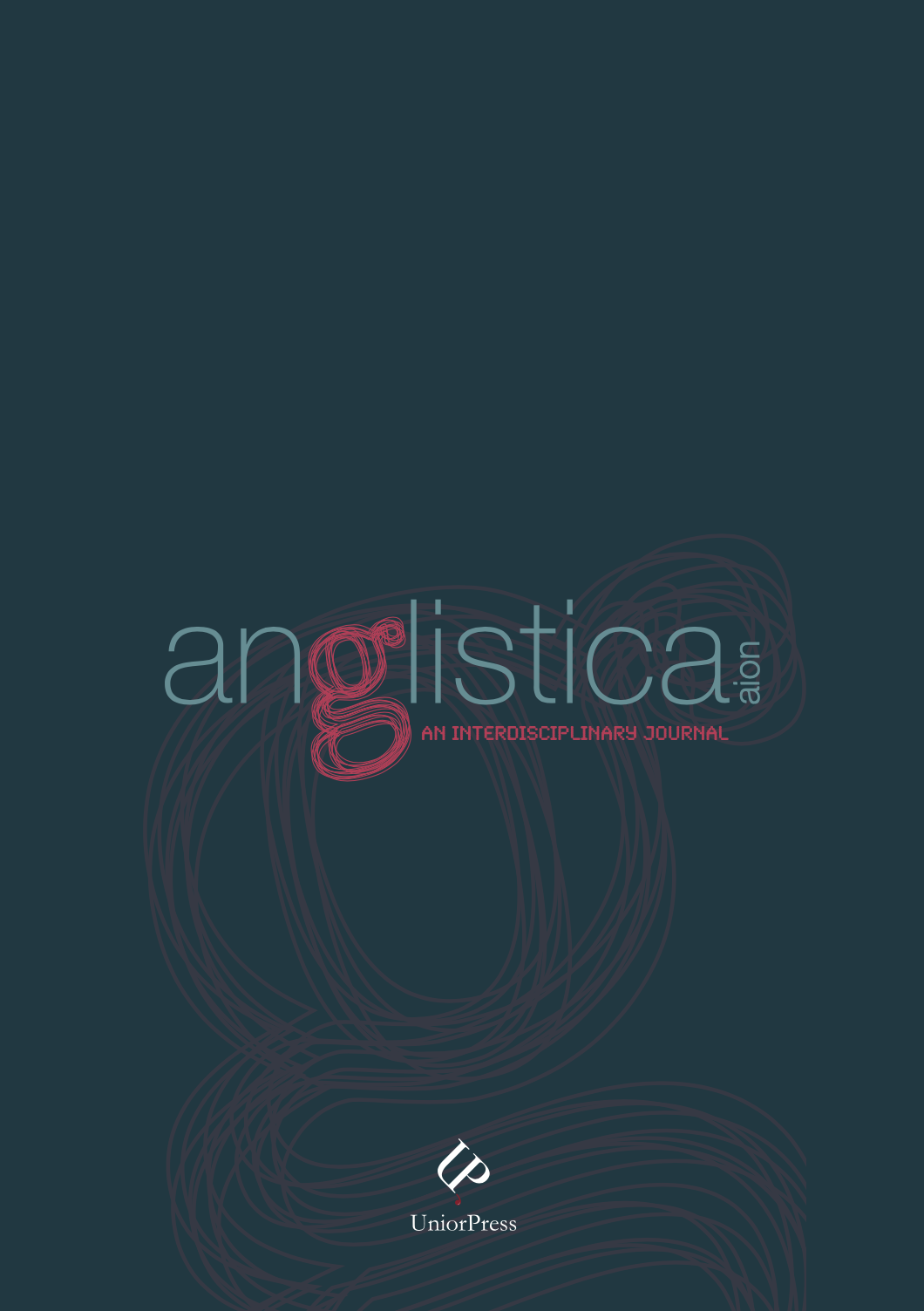 Representing, Disseminating, and Debating Controversial Bioethical Issues in Popularised Discourse
Vol 23 No 1 (2019)
Representing, Disseminating, and Debating Controversial Bioethical Issues in Popularised Discourse
Vol 23 No 1 (2019)This special issue focuses on the linguistic and discursive aspects of the dissemination of knowledge about sensitive and hitherto unforeseen bioethical issues, an area at the intersection between scientific discourse (e.g. medicine, biotechnology, genetics, environmental sciences) and other forms of specialised and professional legal, economic, political, religious discourse.
The issue investigates the literary, linguistic and discursive strategies that are employed in ‘translating’ and framing specialised bioethical notions, terms and debates within literary, journalistic, online, promotional, corporate and legal texts and media coverage. Such terms and debates involve complex fields and contested issues in which people fear that the application of new scientific experiments and findings could impinge on human rights and the dignity of - and responsibility for - birth, illness, performance, privacy, personhood and death, as well as the integrity and well-being of the environment. -
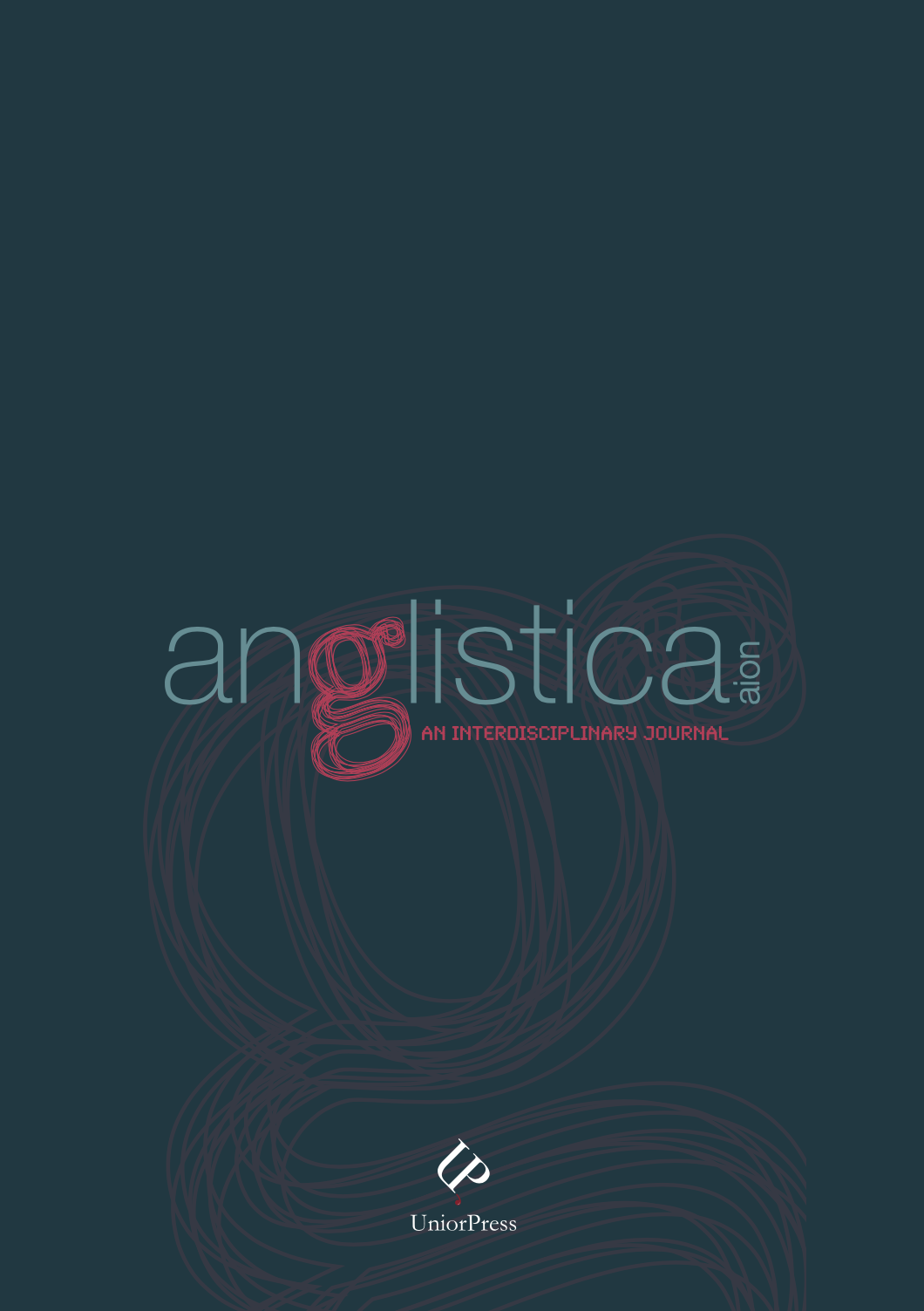 Translating LSP in Literature through a Gender Perspective
Vol 22 No 2 (2018)
Translating LSP in Literature through a Gender Perspective
Vol 22 No 2 (2018)The aim of this issue of Anglistica AION is to proffer an LSP and Specialized Discourse insight into the translation of specialized vocabulary in literary texts. It brings together substantial contributions capable of depicting and displaying major contextualized examples of linguistic peculiarities that would focus on the observation of stylistic, narrative and communicative frames, patterns and schemata, commencing with a consideration of the growing importance of LSP and Translation Studies within the field of Literature. Indeed, Literature and Translation appear as two closely related disciplines, but when the former is flanked by LSP, Specialised Translation or Gender(-sensitive) translation perspectives, the connection becomes more and more opaque. Our aim is to highlight how LSP can be traced in literary and cultural texts and how gender issue and gendered language can affect the reception of the original and/or the translated text. The contributions include reflections on translation and gender/sexuality, adaptation, and (re-)interpretation, in a multifocal examination of literary case studies in adherence with critical approaches that include Translation Studies, Linguistics, Sociolinguistics, Critical Discourse Analysis, Semiotics, Gender Studies, Cultural Studies, Literary Studies applied – and applicable – to the heterogeneous linguistic and cultural milieu of diverse European and extra-European contexts.
-
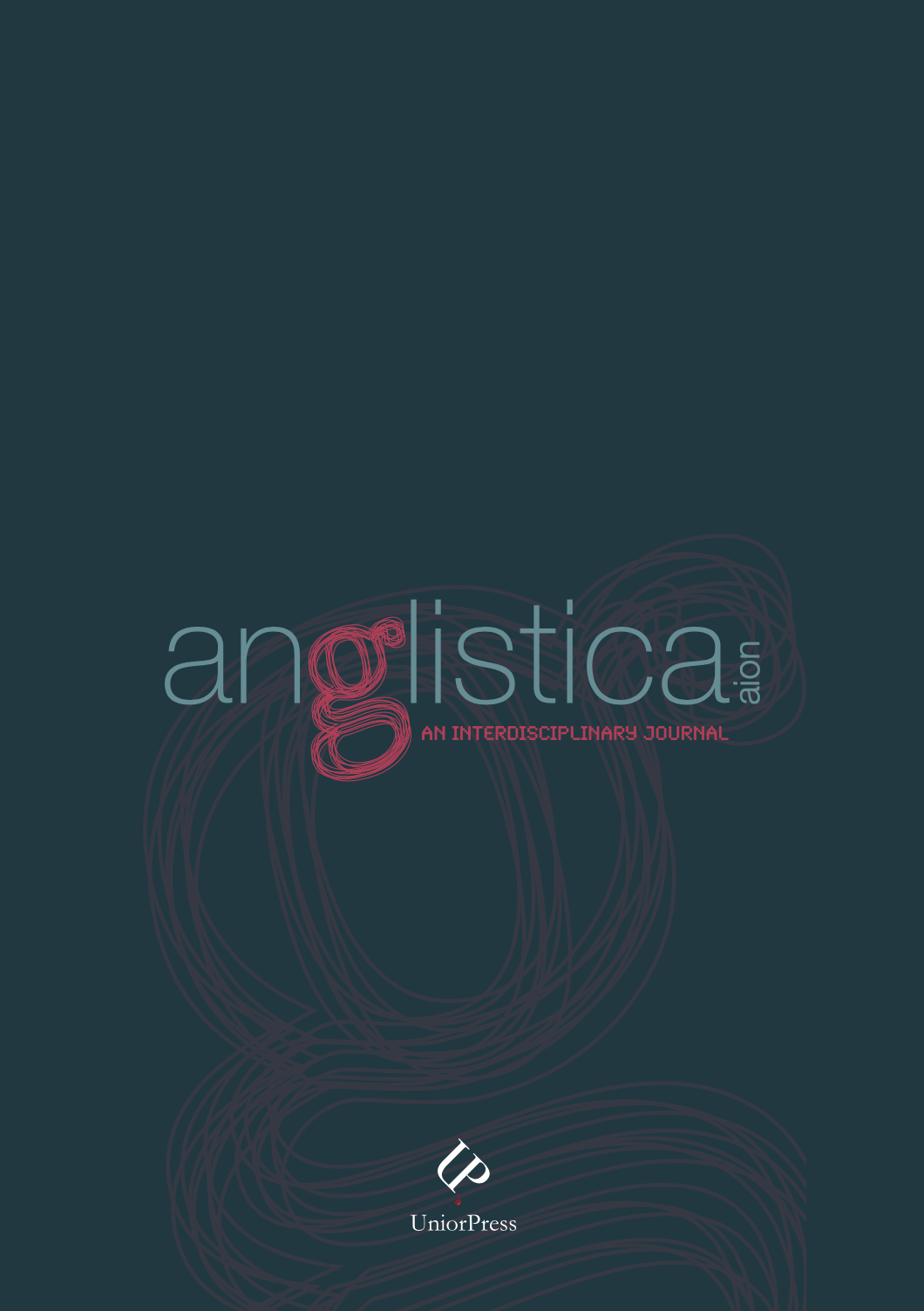 Environmental Conflicts and Legal Disputes Across Media Discourse
Vol 22 No 1 (2018)
Environmental Conflicts and Legal Disputes Across Media Discourse
Vol 22 No 1 (2018)This issue of Anglistica AION explores what environmental questions look like when they enter the legal sphere. The focus is not strictly legal, but rather centred on the processes of the environment getting into the legal sphere via conflicts over environmental questions in an epoch of public awareness and engagement. In its broadest meaning, conflict refers to situations where two or more parties seek to undermine each other because they have incompatible views, competing interests, or fundamentally different values.
The issue consists of eleven articles which interrogate a number of poignant contemporary issues related to environmental legal disputes around the world and their representation in old and new media. Law is the communicative and discoursal venue more than the topic of the works collected here. Instead, conflict and its representation in media discourse are central concepts. The articles offer stimulating interdisciplinary discursive perspectives on specific case studies related to the dissemination and popularization in different countries of media responses to the disputes connected to mega industrial projects and environmental risk (coal mining, pipelines, fog), water pollution and plastic waste, climate change denial, environmental legislation and environmental policy. -
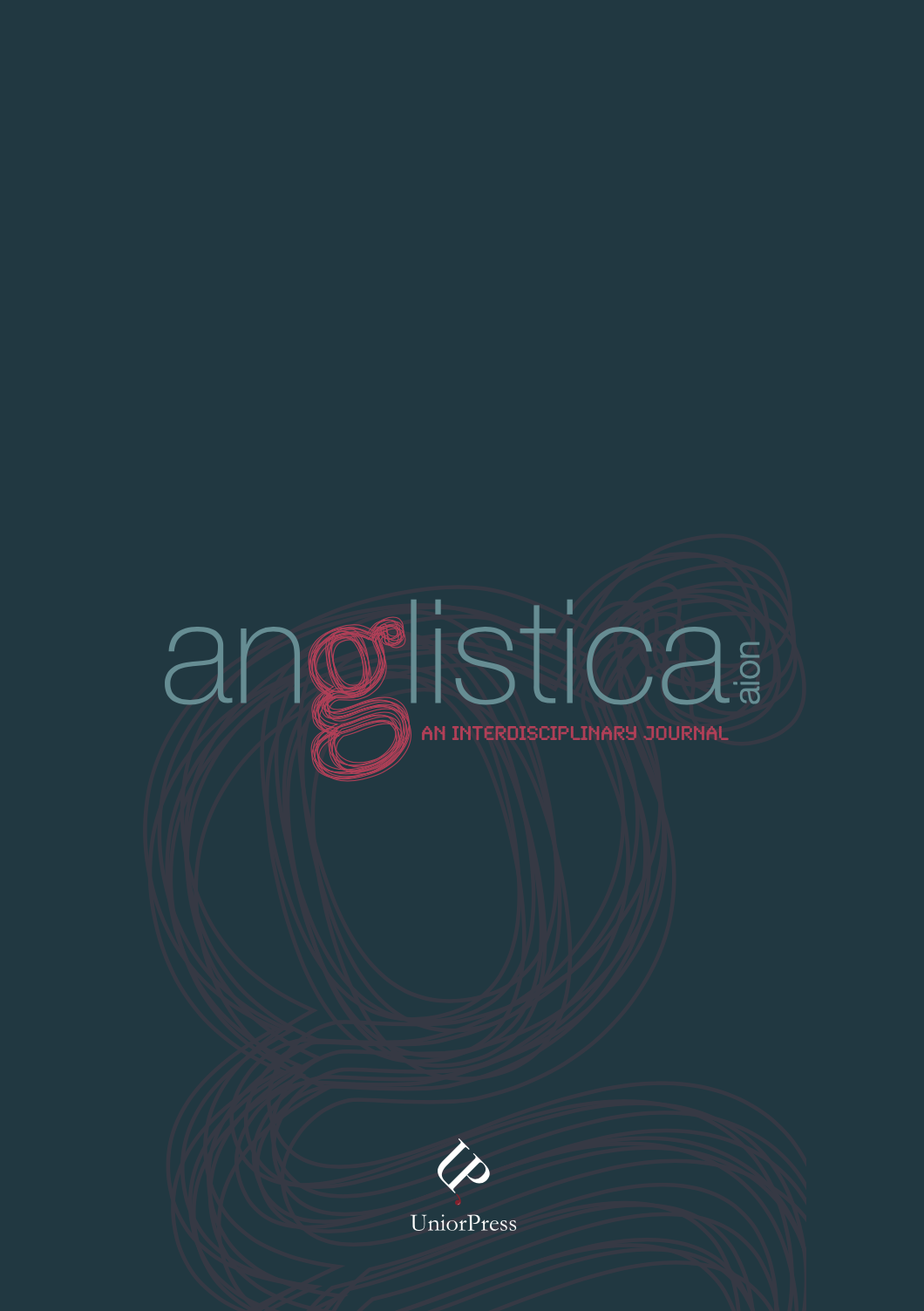 The Representation of “Exceptional Migrants” in Media Discourse: The Case of Climate-induced Migration
Vol 21 No 2 (2017)
The Representation of “Exceptional Migrants” in Media Discourse: The Case of Climate-induced Migration
Vol 21 No 2 (2017)This issue of Anglistica AION investigates one of the main findings of recent debates on the representation of migration in the media, that is their increased ‘affective labour’, triggering fear, anxiety, vulnerability and alarm about/towards transnational mobility. This “politics of fear” has enormously contributed to the media coverage of climate-induced migrants, whose stories are often framed in apocalyptic, exceptional and alarming tones and thus have a much higher chance of making it in to the headlines than other structural processes of discrimination (Wodak 2015). Indeed, traditional and new media play crucial roles, exercising a strong impact on community relations and matters of hospitality. As Teun van Dijk argued in his seminal work on news and social cognition, people rely heavily on media accounts for their knowledge, beliefs and opinions, which in turn form socially shared knowledge and limited interpretative repertoires (1993). Such limited “repertoires” may condition the social apprehension and response to climate-induced migration, hindering the possibility of transnational solidarity (Blommaert 2012, 12). Hence, the issue provides an overview of the representation of climate-induced migration from critical, theoretical and discourse-analytical point of view.
-
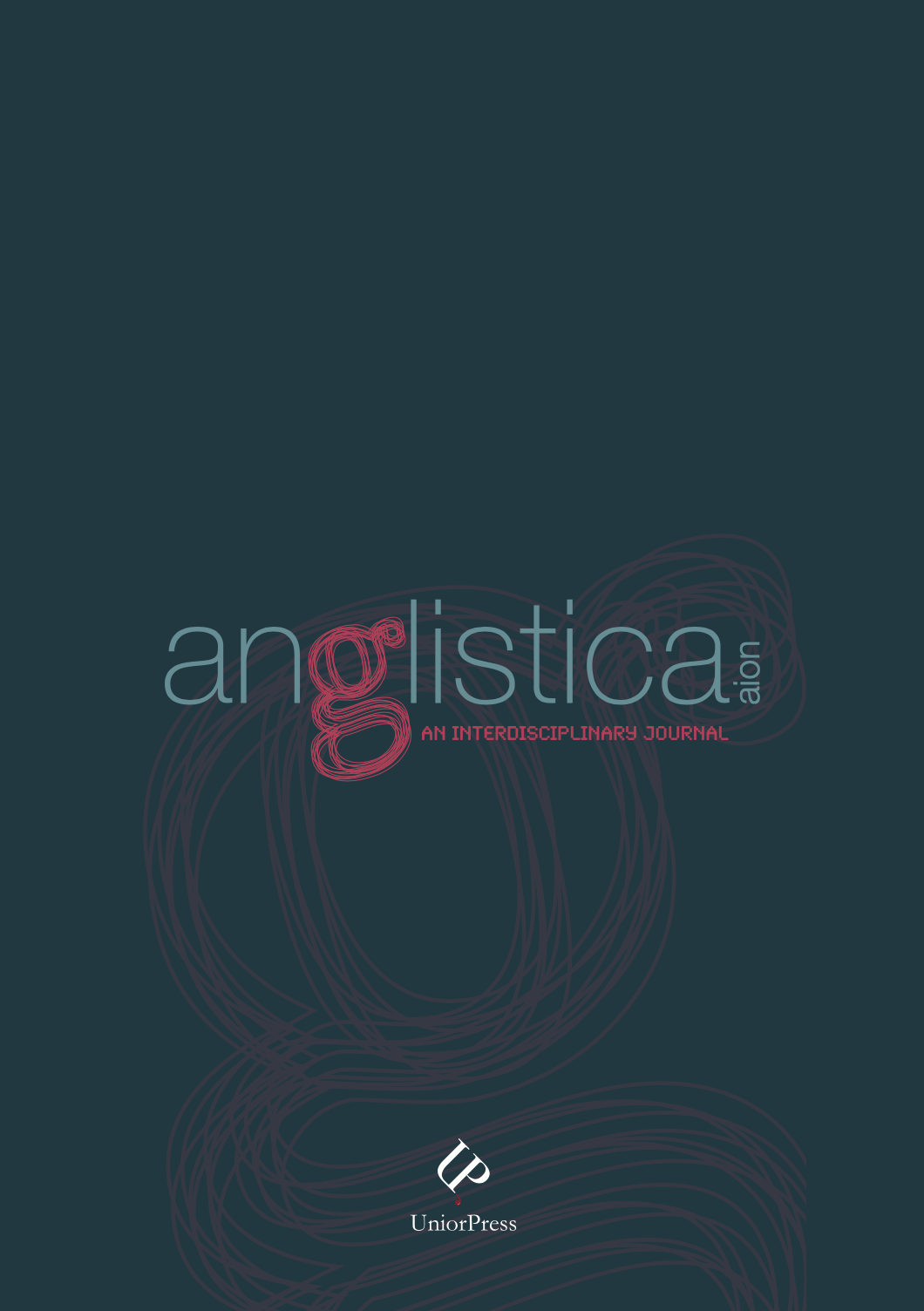 Pragmatics and the Aesthetics of Texts
Vol 21 No 1 (2017)
Pragmatics and the Aesthetics of Texts
Vol 21 No 1 (2017)The aim of this volume is to investigate how the aesthetics of the medium understood as the specific features of various types of texts (literary/cultural/scientific texts, TV series, political speeches) influence the pragmatic analysis of meaning in context. Context has been so far analysed basically according to two perspectives: a) as given and presumptive, prior to pragmatic actions, in line with the Anglo-American approach inspired by Austin and Grice; and b) as constructed through pragmatic actions, according to what may be defined as the sociological turn, more frequently characterizing European ‘continental’ studies.
In this issue of Anglistica AION, we gather new and different insights to context, starting from considering the increasing importance of pragmatic theories, stylistics and statistical studies in the analysis of literary texts, and the questions they pose: Can all texts be analysed pragmatically? Does the genre of a given text with its constraints and/or possibilities force the use of a specific pragmatic theory for its (contextual) analysis? How does the text’s aesthetics influence the pragmatic analysis and the results the analyst is left with? Should the temporal-historical aspect be taken into account when choosing a pragmatic theory in the analysis of texts? Does aesthetics play a role in pragmatically defining what is created and what is given in relation to utterance and context? -
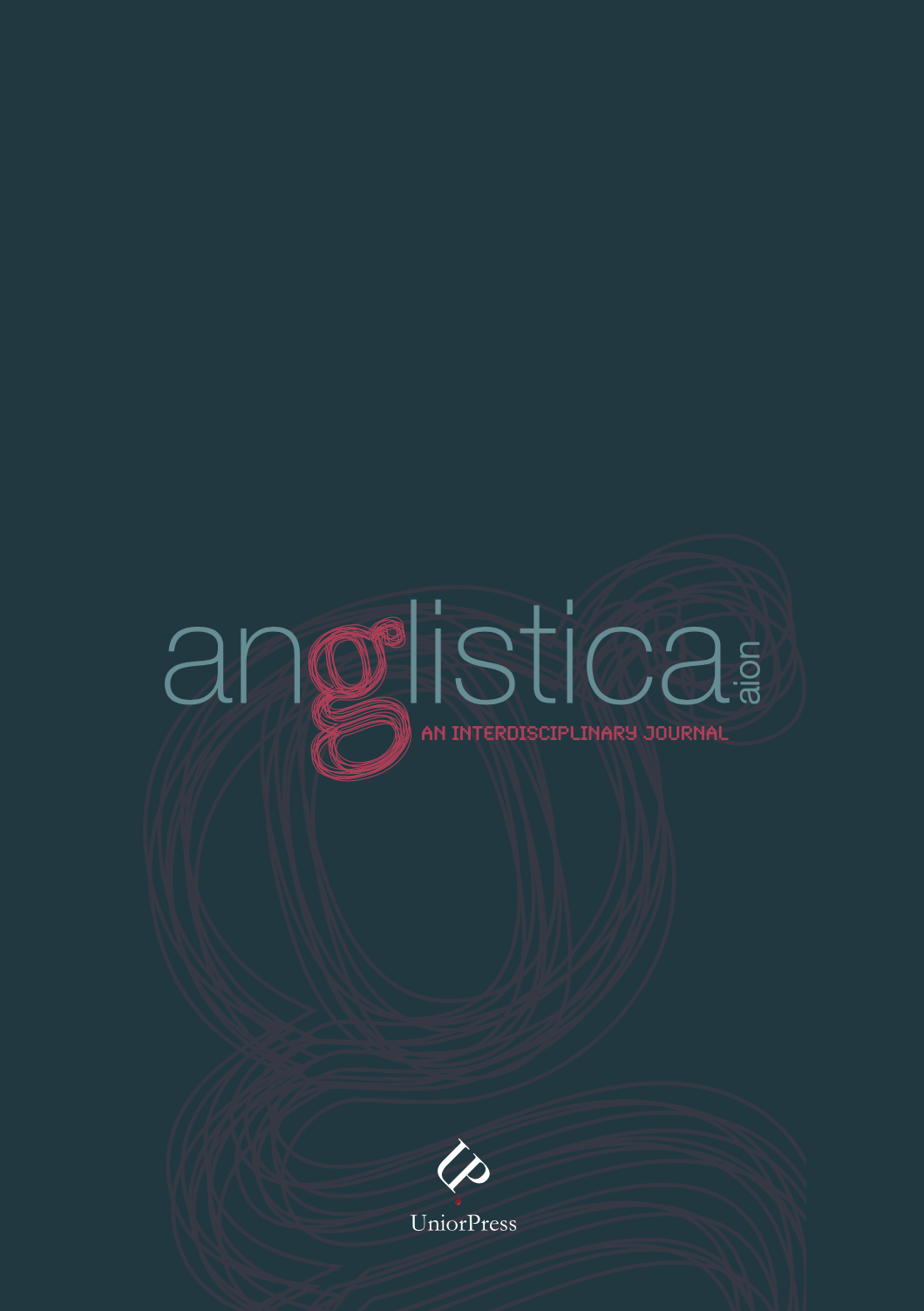 Stage and Beyond: Space and Place in Contemporary Theatre
Vol 20 No 2 (2016)
Stage and Beyond: Space and Place in Contemporary Theatre
Vol 20 No 2 (2016)This issue of Anglistica AION investigates the theatre’s potential to mediate the relationship between human beings and space through analyses of thought-provoking performances which move beyond the limits of the conventional stage in order to elicit the audience’s responses and interactions with the surrounding world. In exploring the forms of theatre involving urban or natural spaces, abandoned or reshaped contexts, or guided paths through unusual delimitations of the performative space, we also take into consideration the recent literary and theoretical debates on the representations of space and place, geopoetical and geocritical approaches as well as the ecocriticism, since they all interweave spatial issues with phenomenological implications and political outcomes in the broadest sense. Those approaches – usually applied to the history of ideas, cultural traditions and narrative and poetical discourses – are potentially fruitful for an analysis of contemporary theatre, one of the most suitable arts where different ways to experience, inhabit, narrate and counter-narrate spaces are formulated and performed.
-
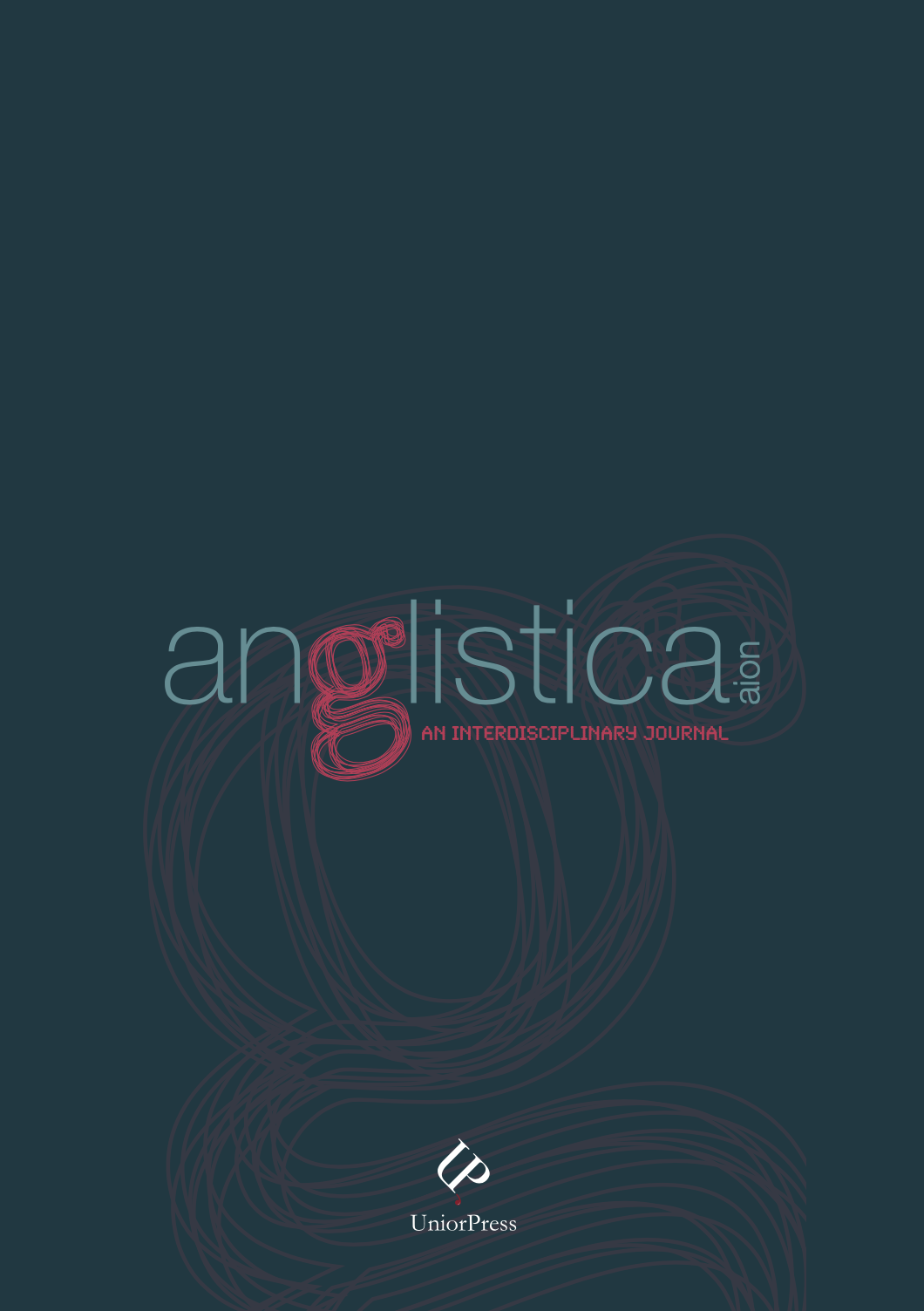 Making Sense of Mess: Marginal Lives, Impossible Spaces
Vol 20 No 1 (2016)
Making Sense of Mess: Marginal Lives, Impossible Spaces
Vol 20 No 1 (2016)In this issue of Anglistica AION, we investigate the idea of “mess,” at once physically tangible and intellectually slippery, in global and transnational cultural productions and social practices. Thus, we envision “mess” as piles of seemingly unorganized materials, unsanitized spaces, dirty interstices that refuse to be cleaned and systematized. We are particularly fascinated by its potential impact on the study of what J. E. Muñoz broadly defined as “minoritarian subjects”: in fact, resistance to “normalcy” and the challenge to sanctioned symbolic “order” have been at the heart of late 20th century queer, ethnic, gendered, indigenous, and other identitarian studies. In addition, the notion of mess, messing-up, mash-ups, and morphing, both as theme and as cultural practice, may signal a productive gesture that rejects hierarchical organizing and linear/causal relations of value, thriving instead in simultaneity and precariousness, in overlapping and contested spaces and conflictual, even irreconcilable, dis/identifications. Far from advocating for a romanticized approach to “mess”, or for a flattening of the concept onto a negative view that sees it merely as a lack of clarity, order, or organization, we encourage investigations that explore both the aesthetics and the politics of mess, in a critical attempt to make sense of it.
-
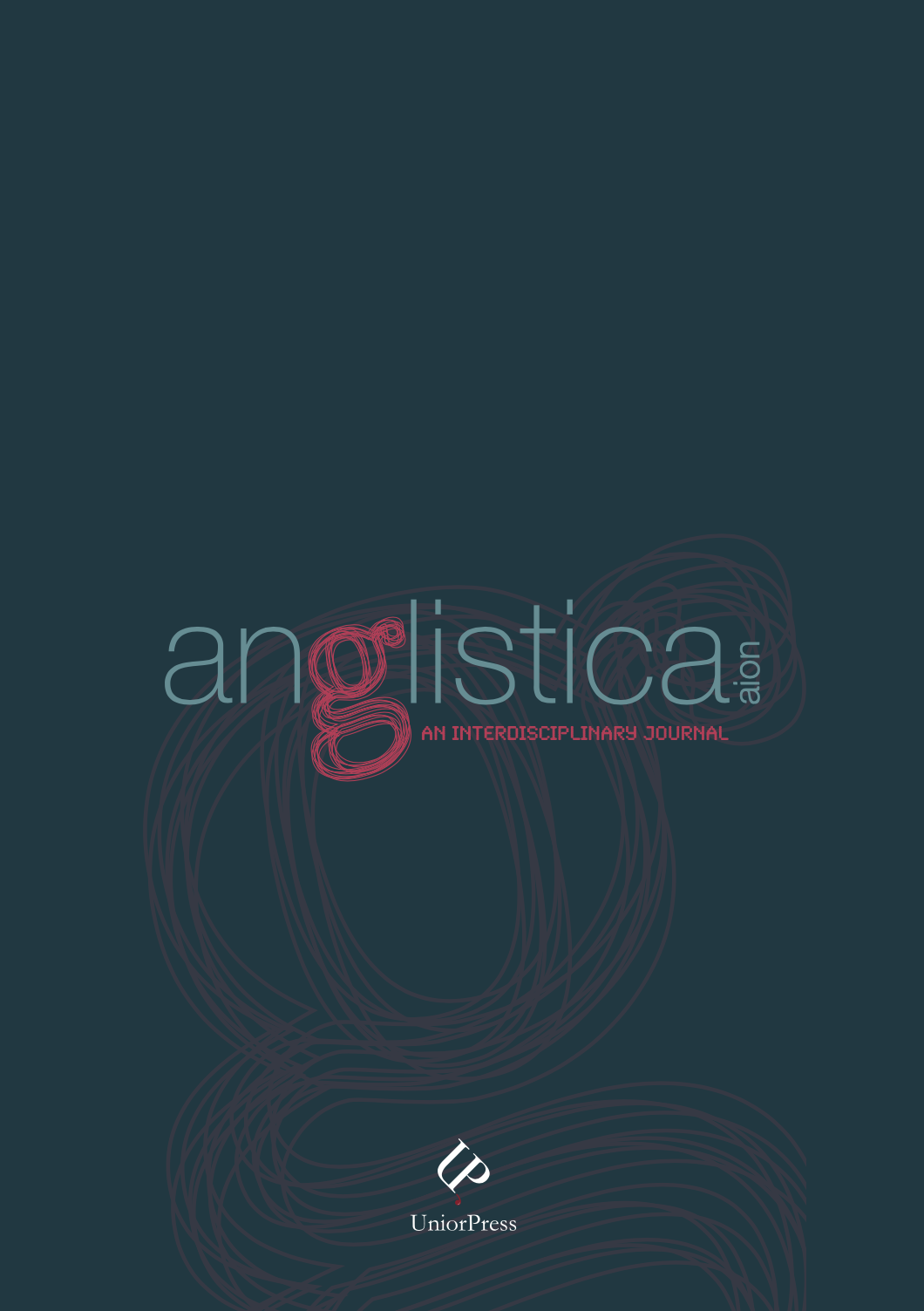 Wastelands: Eco-narratives in Contemporary Cultures in English
Vol 19 No 2 (2015)
Wastelands: Eco-narratives in Contemporary Cultures in English
Vol 19 No 2 (2015)The topic of this issue is inspired first of all by an iconic text such as T. S. Eliot’s The Waste Land, published in 1922, and by the 20th-century literary and cultural tradition dealing with apocalyptic landscapes, dystopian nightmares, chronicles of a present/future world in disarray. Recently the waste land theme has been developed by Zygmunt Bauman in Wasted Lives: Modernity and its Outcasts (2003). Waste Land is also the name of a 2010 social documentary based on the lives of garbage pickers in Rio de Janeiro, where Vik Muniz creates art out of recycled materials, as well as of a science fiction video game, set in a post-apocalyptic America. In the new millennium, waste plays an intriguing role in the contemporary Western consciousness in an age in which eco-narratives increasingly denounce the collapse of the natural order and engage with a sustainable response to the wasting of human beings and of natural resources. Waste generates an ethics of responsibility based on giving an account of oneself.
-
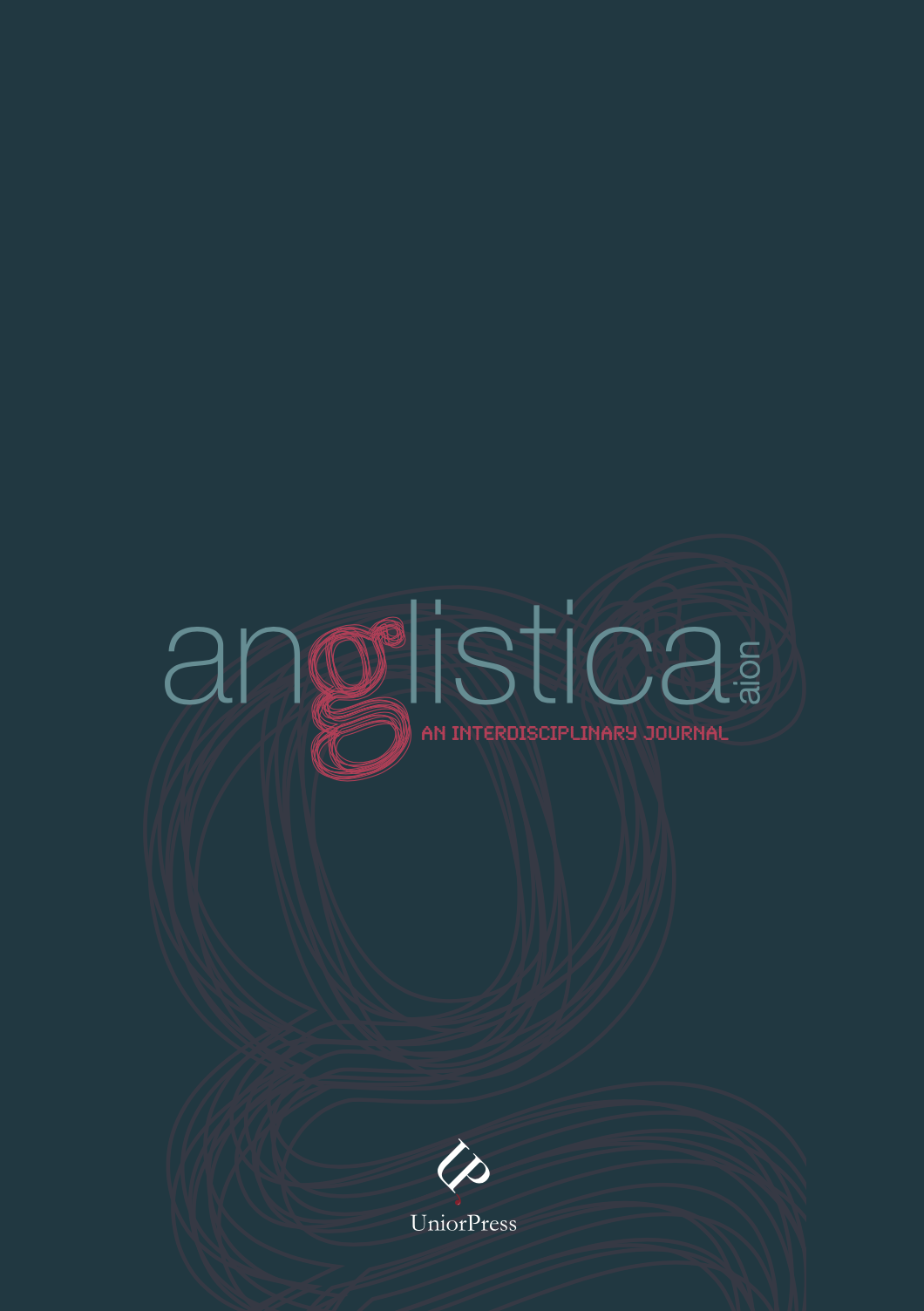 Out of Hidden India: Adivasi Histories, Stories, Visual Arts and Performances
Vol 19 No 1 (2015)
Out of Hidden India: Adivasi Histories, Stories, Visual Arts and Performances
Vol 19 No 1 (2015)A new visibility and an amplified resonance have recently marked the predicament of tribal India. The category of indigeneity has begun to elicit an intellectual theorization located at the crossroads of diverse disciplinary fields, spanning social sciences, literary criticism, media and artistic studies. Peoples who define themselves in terms of free access to natural resources, communitarian knowledges and place-based solidarities, are seen in their challenge to the narrations both of the colonial and the postcolonial state. Their presence in modernizing, increasingly anglophone, India is disturbing the logic of neoliberal globalization no less than that of liberal citizenship.
Problematic as it is to bring together under the label ‘Adivasi’ a very heterogeneous corpus of cultural manifestations we have tentatively used this label as a working functional umbrella in order to, however partially, contribute to the mapping of the complex reality of tribal India. -
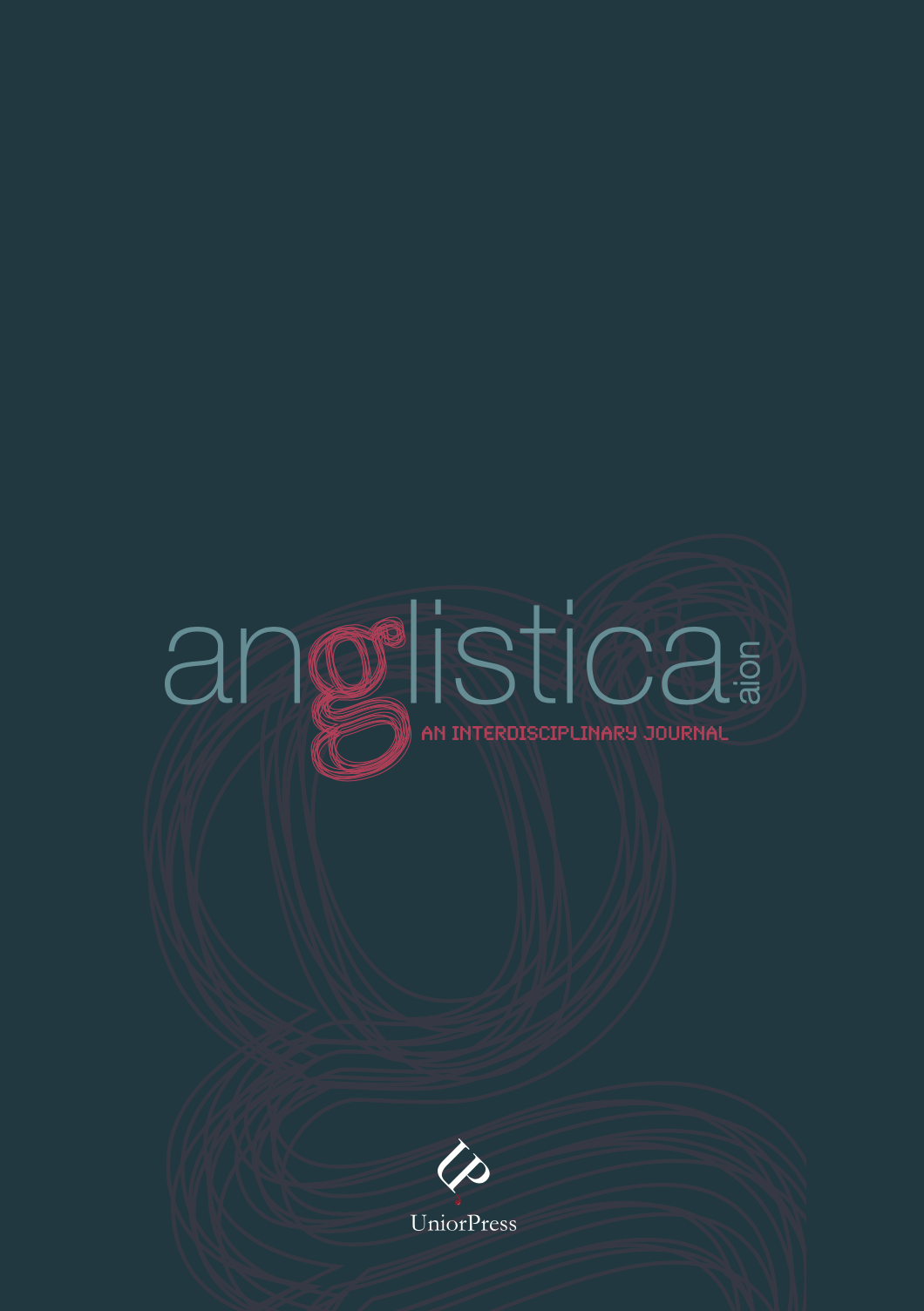 Inflections of Technoculture: Biodigital Media, Postcolonial Theory and Feminism
Vol 18 No 2 (2014)
Inflections of Technoculture: Biodigital Media, Postcolonial Theory and Feminism
Vol 18 No 2 (2014)This special issue of Anglistica AION aims at highlighting the blind spots between digital media properties and the questions posed by post-colonial subjects. Drawing on fields of inquiry as diverse as television and radio, cinema and cyberspace, new materialism and xenogenesis, the contributions help outline a composite theoretical framework trying to interrogate postcolonial ontologies and economies with regard to processes of inclusion/exclusion, the creation of borders, gendered and racial performance in a globalized world.
The contributors are mostly former doctoral students from the PhD program in Cultural and Postcolonial Studies at L'Orientale, and the Media and Communication department at Goldsmiths College, London, which makes this issue the result of an especially fruitful exchange between the two groups. -
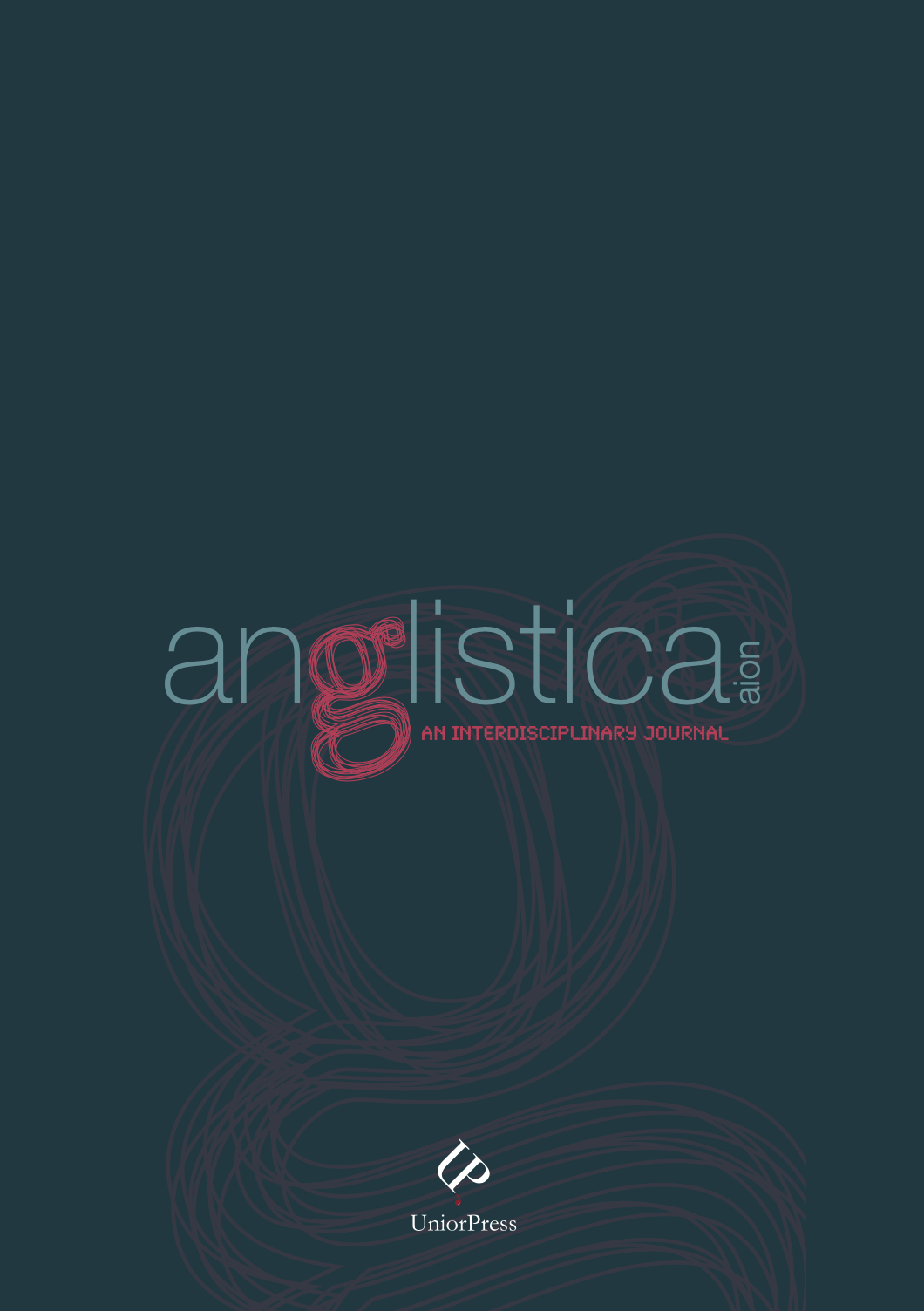 Attention, Agency, Affect: In the Flow of Performing Audiences
Vol 18 No 1 (2014)
Attention, Agency, Affect: In the Flow of Performing Audiences
Vol 18 No 1 (2014)This special issue focuses on the fractious, contested concept of ‘participation’ as it has emerged from the recent cross-fertilisation of literary and cultural studies with an array of performance theories and practices. In particular, it aims to investigate how a critical focus on the ‘travelling’ and interstitial concepts of performance and performativity can help to reframe, revise and challenge existing notions of publics and audiences (both as spectators and as readers). The contributions published here range from installation artworks and reality shows to photography and antithetical forms of theatre, including Deaf performances and embodied narrative, thus reflecting, each with their distinctive concerns and specific case studies, a limited but significant sample of the richness and variety of the inter- or trans-disciplinary dialogue tensely taking place among different artistic and critical perspectives on the issue of performing audiences.
-
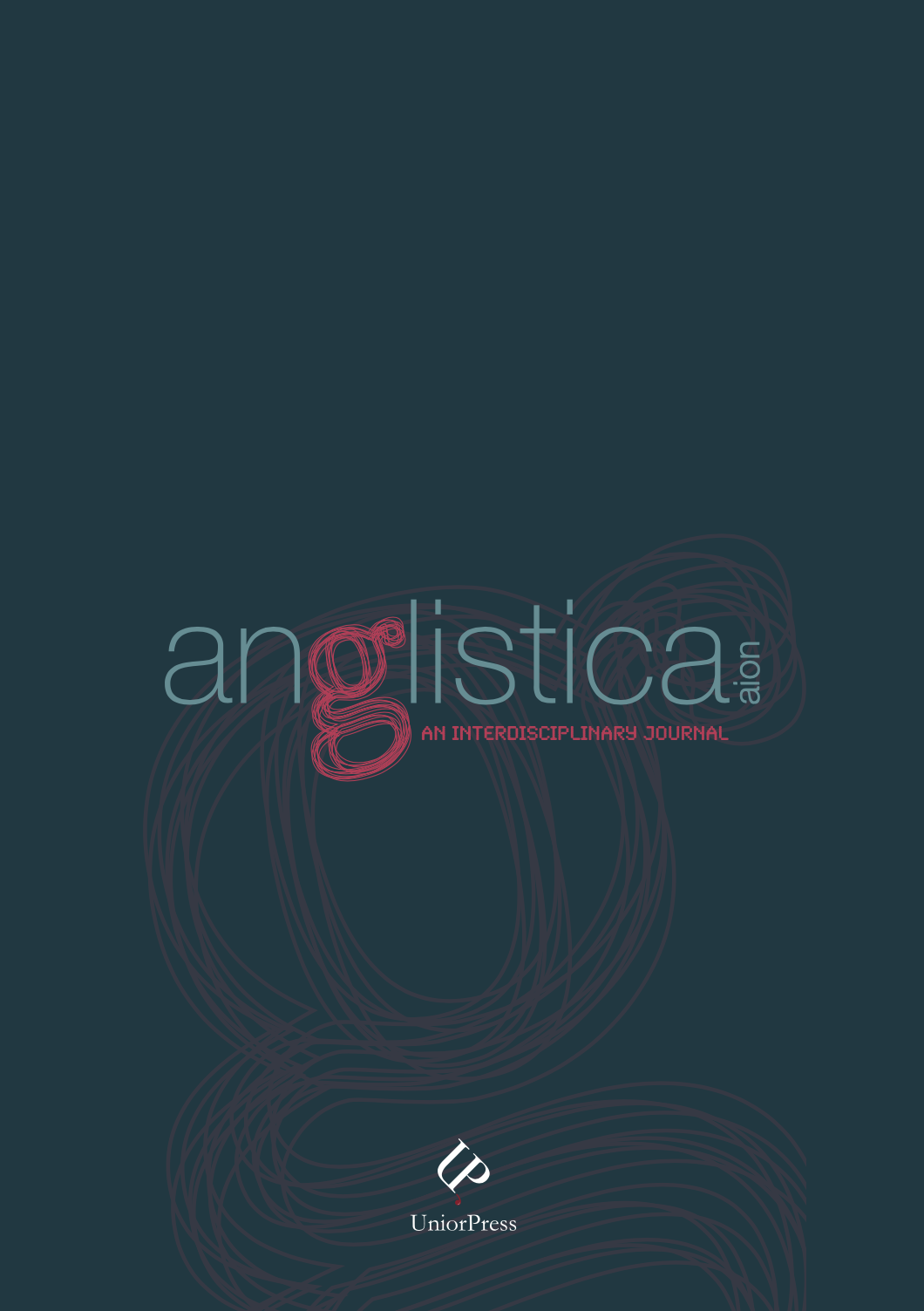 Variation and Varieties in Contexts of English
Vol 16 No 1/2 (2012)
Variation and Varieties in Contexts of English
Vol 16 No 1/2 (2012)This issue of Anglistica deals with variation and varieties of English from a wide range of perspectives and methodological approaches mainly from within sociolinguistics and discourse analysis. The empirically oriented papers analyse a range of different types of field-gathered authentic data and corpora, covering intra- and inter-language, intra- and inter-speaker variation, variously involving register, genre, stylistic, diaphasic, diatopical, diastratic and diachronic types of variation. The issue aims to contribute to the ongoing debates on language variation and its implications, highlighting its dynamic social and socio-psychological functions and meanings as well as some taxonomic and terminological issues.
-
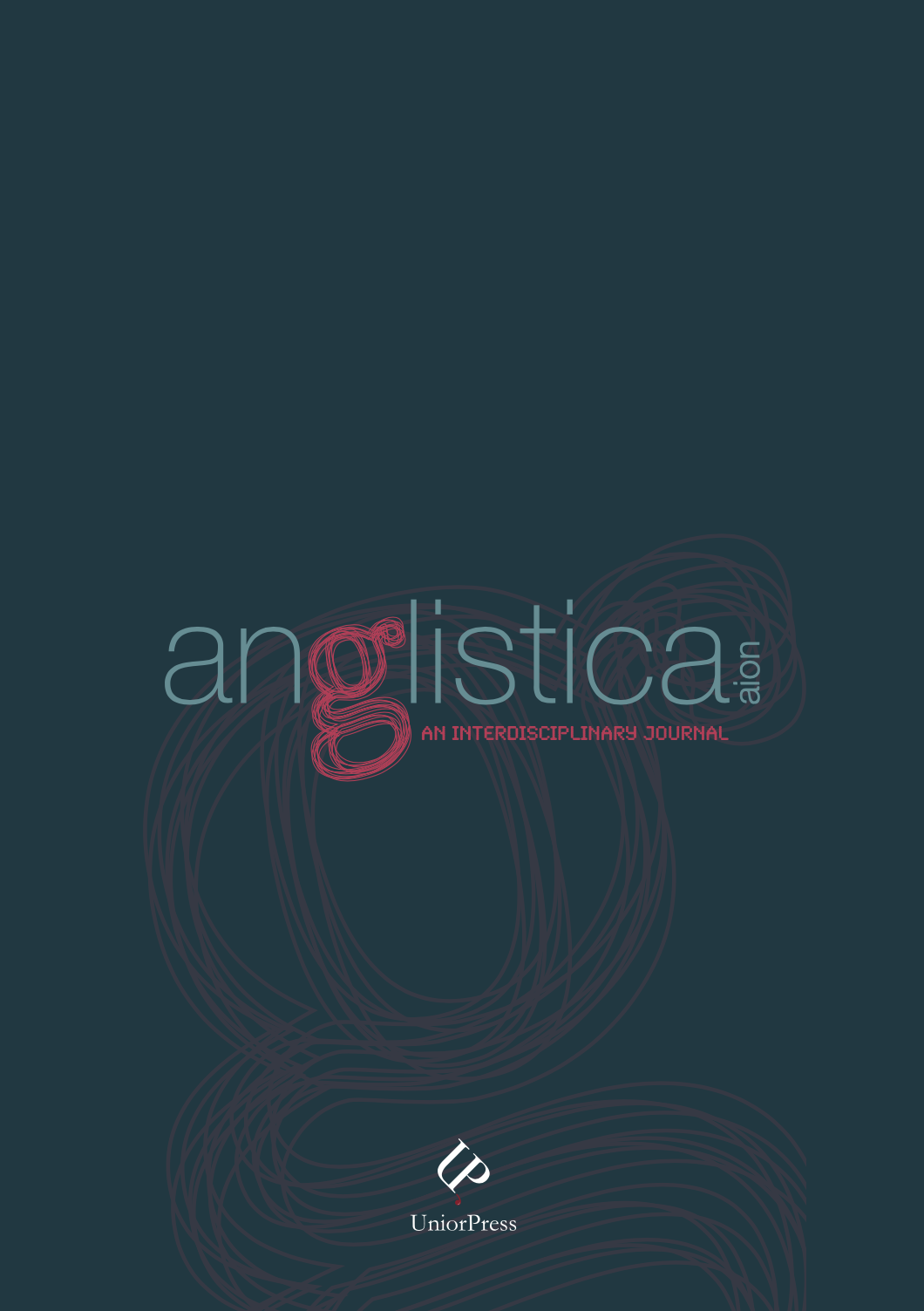 Shakespeare in the Media: Old and New
Vol 15 No 2 (2011)
Shakespeare in the Media: Old and New
Vol 15 No 2 (2011)Edited by Anna Maria Cimitile and Katherine Rowe
The title of this special issue of Anglistica AION emphasizes the always polychronic nature of media practices – including those of which our own scholarhsip is necessarily a part. The essays attend with care to the long and uneven durée of specific performance idioms that define and constitute ‘Shakespeare’ as a polychronic corpus in this way.
1-25 of 31
Next
Language
Anglistica AION: An Interdisciplinary Journal
Rivista di Classe A (Top Journal)
A double blind peer-reviewed journal, published twice a year by

ISSN: 2035-8504
Autorizzazione del Tribunale di Napoli n. 63 del 5 novembre 2013

